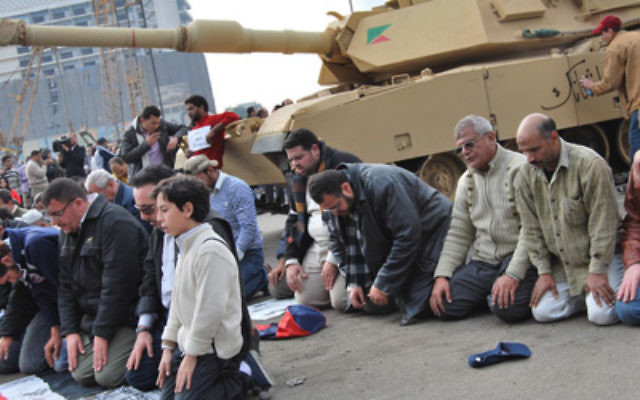Aussie expert warns of Muslim Brotherhood threat
AN adviser to former prime minister Kevin Rudd has warned the longer Egypt’s President Hosni Mubarak holds on, the stronger the Muslim Brotherhood will become.
AN adviser to former prime minister Kevin Rudd has warned the longer Egypt’s President Hosni Mubarak holds on, the stronger the Muslim Brotherhood will become.
Peter Khalil, now a University of Sydney academic, also said whatever happens in Egypt, the world can expect an open debate in the Middle East about the future of the Egypt-Israel peace agreement.
This week, protests continued in Cairo and other Egyptian centres, despite an agreement by Egyptian leaders to hold free elections in September.
As Israel watched on, news emerged via WikiLeaks that the Knesset hoped for Vice-President Omar Suleiman to take the leadership, at least in an interim capacity.
Khalil, who participated in the Australia-Israel Leadership Forum in December before travelling on to Cairo, said he thought Egyptians were prepared and able to democratically elect a new government, but he added that timing is vital.
“The longer Mubarak holds on, the more opportunity it gives to groups like the Muslim Brotherhood to take advantage of the situation,” Rudd’s former foreign policy and national security adviser said.
If Mubarak stood down now in favour of an inclusive caretaker government, the secular parties, which have been withering for more than six decades under successive dictators, would have a chance to rebuild, he said.
“They [secular] parties need to establish themselves to the point where they can actually run competitively, particularly because the Muslim Brotherhood is the most organised political group at the moment, the most populist.”
Asked about the stability of the wider region, he predicted the situation is going to change significantly.
Israel, he said, has not wanted to be seen to be “on the wrong side of history” by supporting Mubarak, despite the fact he has acted in Israel’s interests and stuck to the bilateral peace agreement.
However, with the inevitable change of government, Khalil said debate would occur about the future relationship between Egypt and the Jewish State.
“For the most part,” he said of the peace treaty, “there has been no real engagement and no real peace between the people. If we do have a democratic government down the track, one assumes they will abide by international treaties, but there will be an open debate about whether that treaty goes ahead and there is going to be an open debate on the relationship.”
The other key factor is Iran’s involvement in Egypt’s future.
“The Iranians are trying to jump on board and pretend this is an Islamic revolution,” he explained. “That is totally off the mark.
“There is a risk that this could become an Islamic takeover, no-one doubts that.”
Image: Egyptians pray for a speedy resolution to the current turmoil in Cairo. Photo: JTA


comments